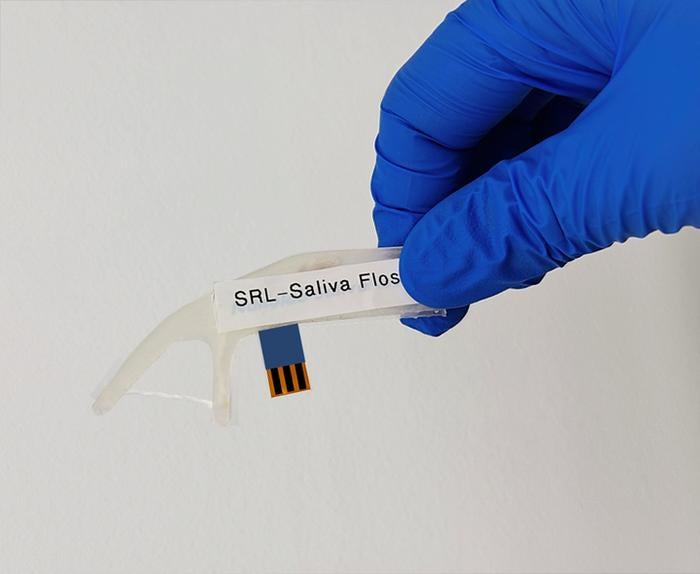ARTICLE AD BOX
Could flossing your teeth help you track your physical and mental health?
Researchers at Boston’s Tufts University say they’ve designed a floss pick system that could one day be used to track a wide range of conditions, including stress – and cancer.
The device works by measuring cortisol, which is known as our stress hormone.
“We didn’t want measurement to create an additional source of stress, so we thought, can we make a sensing device that becomes part of your day-to-day routine? Cortisol is a stress marker found in saliva, so flossing seemed like a natural fit to take a daily sample,” Sameer Sonkusale, a professor of electrical and computer engineering, explained in a statement.

Sonkusale and his research team published their work on Friday in the journal ACS Applied Materials and Interfaces.
The specially designed floss looks just like a common floss pick that consumers can pick up at a pharmacy store.
So, how does it work?
The string picks up saliva through a narrow channel in the floss. It’s drawn into the pick handle and an attached tab, where it spreads across electrical conductors that detect the cortisol.
The cortisol is recognized using a technology called electropolymerized molecularly imprinted polymers, or eMIPs, for short. The university noted that it works kind of similarly to a plaster cast, leaving the “memory” of the cortisol molecule in a polymer around it. Plastic and rubber are types of polymers.
This cast could be used to detect cortisol and other molecules in saliva, the researchers said. It could even be used to monitor glucose for diabetes or markers for cancer. It could possibly detect multiple issues at once.

“Biosensors have typically been developed using antibodies or other receptors that pick up the molecule of interest. Once a marker is found, a lot of work has to go into bioengineering the receiving molecule attached to the sensor,” said Sonkusale. He noted that eMIP “does not rely on a lot of investment in making antibodies or receptors. If you discover a new marker for stress or any other disease or condition, you can just create a polymer cast in a very short period of time.”
Furthermore, the researchers say the sensors are accurate — and comparable to the best-performing sensors on the market. They’re currently creating a startup to try and bring the product to market.
However, Sonkusale noted that saliva markers can still have variations among individuals.
“For diagnostics, blood is still the gold standard,” he said. “But once you are diagnosed and put on medication, if you need to track, say, a cardiovascular condition over time to see if your heart health is improving, then monitoring with the sensor can be easy and allows for timely interventions when needed.”









 English (US) ·
English (US) ·